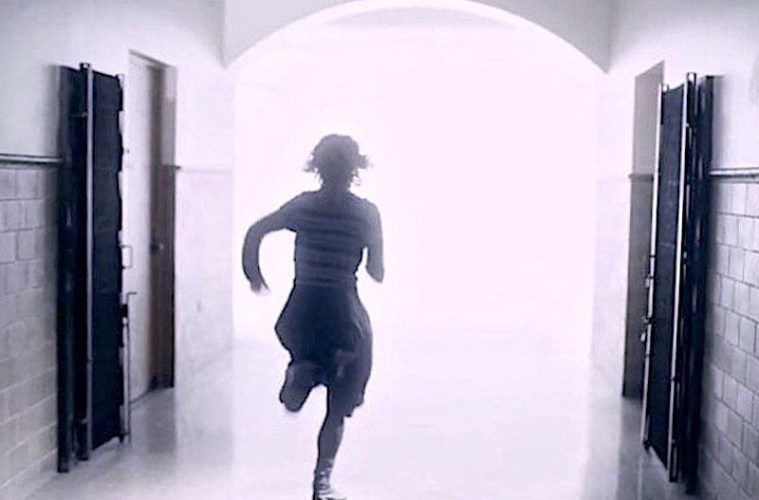Considered one of the world’s greatest writer-directors, Charlie Kaufman remains largely unknown outside cinephile circles. I’m Thinking of Ending Things, his first feature in five years now on Netflix, should go some way in changing that while cementing his rep for strange and unique narrative approach.
While Kaufman’s work (Adaptation, Eternal Sunshine of the Spotless Mind) usually defies classification, the chilling I’m Thinking of Ending Things is decidedly a horror film. Based on the debut novel of Iain Reed -a thriller that was a finalist for the Shirley Jackson Award- the film’s atmosphere is dark and snowy, punctuated with surreal dream sequences that create a truly mind-bending experience.
The film begins normally enough. As it opens, Jessie Buckley plays a young woman meeting her boyfriend Jake’s (Jesse Plemmons) family for the first time. But, as her voice over tells us, she’s having second thoughts– about Jake, about life, about her name. Is it Lucy? Lucia? Louisa? It changes like the wind, suddenly and yet in a way that you don’t really notice until the weather literally begins to change. Watching the weather go from sunny, to gray, to snowy, to black, is like watching the sun drain the color from a Polaroid picture, and Kaufman wastes little time draining color from the frame.
When they pull up at the farmhouse, Jake’s mother (Toni Colette) waves and waves from the window. Despite the snow, Jake insists on first showing Lucy the barn, which is infested with pigs, maggots and a scorched black spot. Weird. More anomalies pop up inside the house, including hidden basements, glowing wallpaper and objects that seem to move in a time-vortex.
Believe it or not things even get weirder from there. Characters leave the room and return looking older, or younger, from when they left. Lucy starts receiving mysterious phone calls, alerting her that: “There’s only one question to resolve.” Jake’s childhood dog comes back to life. What the hell is happening?
For most of Ending Things, Kaufman strands Buckley (and the audience) in the echo chamber of Lucy’s head, where ideas of art, love, loss and aging have space to wander. Through this narrative strategy, the film effectively blurs the line between dream and reality, and we’re often left wondering if what Lucy is seeing is real or fake, and if it even matters? The result is a brainy, imaginative, magnificently bonkers update of Andrei Tarkovsky’s Solaris, another horror movie about someone who, given the chance, would trade reality to live in the lonely, deserted land of their dreams.
Advertising disclosure: We may receive compensation for some of the links in our stories. Thank you for supporting Irvine Weekly and our advertisers.

